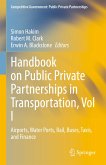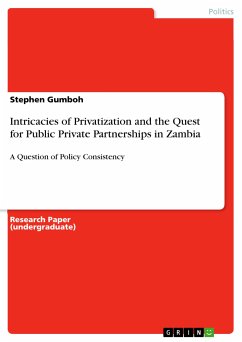Governments typically build and maintain public infrastructure, which they fund through taxes. But in the past twenty-five years, many developing and advanced economies have introduced public-private partnerships (PPPs), which bundle finance, construction, and operation into a long-term contract with a private firm. In this book, the authors provide a summary of what they believe are the main lessons learned from the interplay of experience and the academic literature on PPPs, addressing such key issues as when governments should choose a PPP instead of a conventional provision, how PPPs should be implemented, and the appropriate governance structures for PPPs. The authors argue that the fiscal impact of PPPs is similar to that of conventional provisions and that they do not liberate public funds. The case for PPPs rests on efficiency gains and service improvements, which often prove elusive. Indeed, pervasive renegotiations, faulty fiscal accounting, and poor governance threaten the PPP model.
Dieser Download kann aus rechtlichen Gründen nur mit Rechnungsadresse in A, B, BG, CY, CZ, D, DK, EW, E, FIN, F, GR, HR, H, IRL, I, LT, L, LR, M, NL, PL, P, R, S, SLO, SK ausgeliefert werden.









